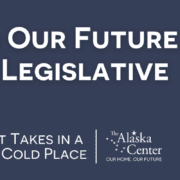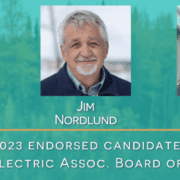Federal Funding Cuts (and Backtracking) Creates Chaos
President Trump’s first weeks in office have produced a flurry of executive orders and confusing directives for federal programs nationwide, with many experts identifying the moves as unlawful. On Tuesday, January 27th, the President’s office released a memo directing a “pause” on grants, loans, and financial assistance from the federal government. This announcement, coupled with an abrupt Medicaid portal outage, sparked distress for millions of Americans whose lives are impacted by federal funding.
Federal funding supports a large number of crucial social services and public assistance programs that we rely on in Alaska. From childcare to food security to the environment, threatening to take away these sources of support hurts families across our state. Federal dollars are crucial to many of our communities, and President Trump’s executive orders remain a threat to our way of life. The Alaska Center will continue to monitor and advocate for federal funds appropriated to Alaska, but we need your help!
The immediate confusion caused by this directive led to chaos nationwide and at home, leading the administration to rescind the order shortly after the memo was published. The original memo specified that the majority of federal funding would need to be reviewed by the Office of Management and Budget (OMB) to ensure alignment with the president’s priorities. The memo explicitly named areas the President seeks to gut, including crucial climate investments that are poised to bring hundreds of millions of dollars to Alaska.
These confusing directives take place on the heels of several recent executive orders aimed at slashing federal spending and agency operations. You can read more about these actions in our most recent blog.
To further the President’s interests laid out in these executive orders, in the same week, the administration announced a “buyout option” for the majority of full-time federal employees via email. Current employees will have until February 6th to decide if they will resign in exchange for about 8 months of pay. Workers that remain in their roles were told that they would not be provided with certainty that their agency or position would not be eliminated in time.
In the background of all of this, President Trump has appointed Russell Vought to lead the OMB. Vought is one of the primary authors of Project 2025 and a staunch opponent of government spending. Despite a boycott from Democrats, the Senate Budget Committee advanced Vought’s nomination 11-0. A procedural vote for Vought’s nomination is set for Monday, February 3rd.
We encourage you to reach out to your representatives and let them know how you feel about this disastrous nomination. You can find the telephone number for your Senator here.
President Trump’s actions stand to put incredible strain on federal programs and resources in Alaska. Our schools, non-profits, and local governments deserve better than the chaotic leadership we are currently experiencing. Together, we need to work to ensure the Trump Administration operates within the bounds of the law, and puts hard working people – Alaskans included – before Project 2025’s wishlist.
Make your voice heard! Use this pre-filled email form from the League of Conservation Voters to tell your Senators that OMB nominee Russell Vought is the wrong choice for Alaska.
For a thriving Alaska,
The Alaska Center










